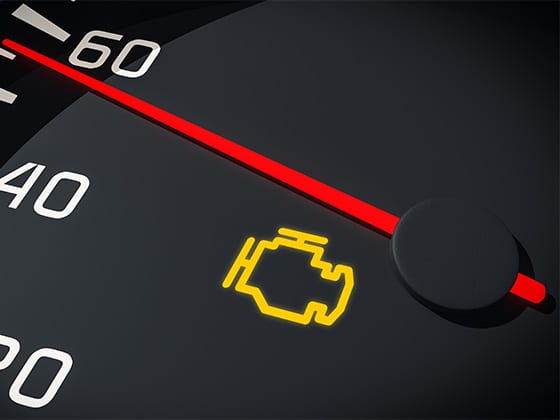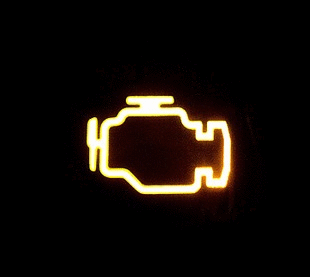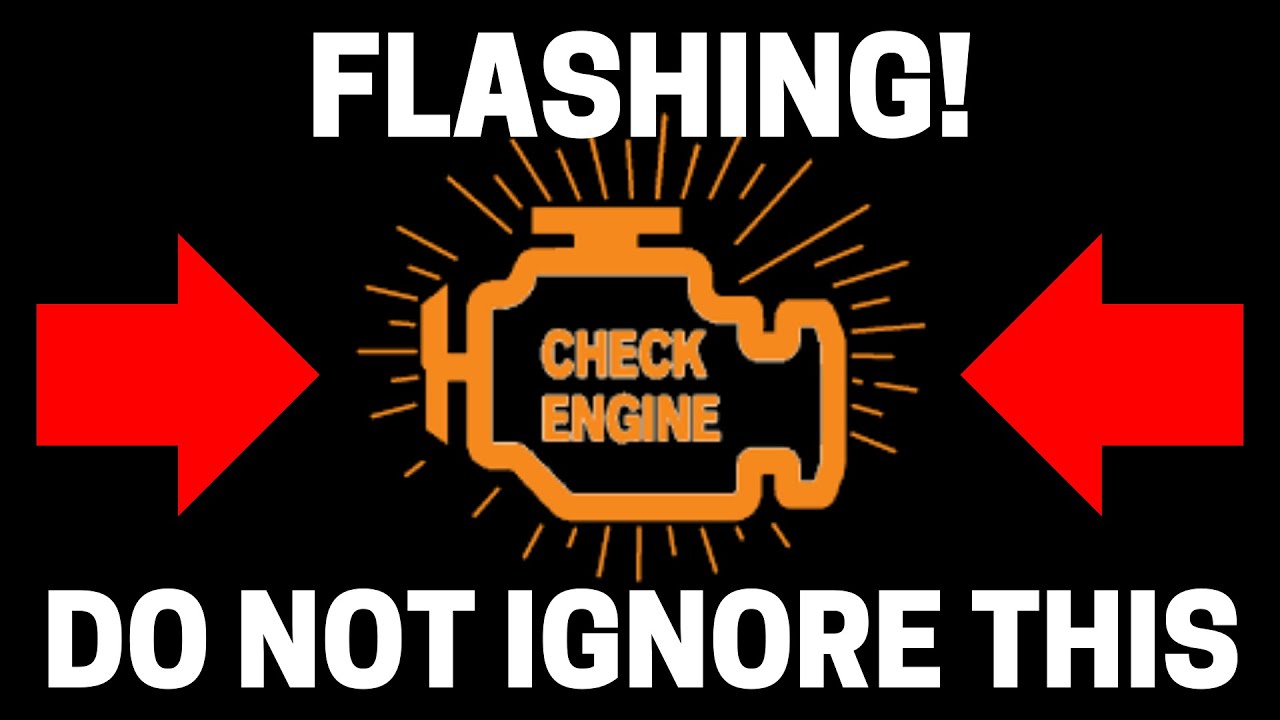A blinking engine light indicates a severe engine misfire. This can lead to costly damage if not addressed promptly.
A car’s engine is its beating heart, and the check engine light serves as a critical health monitor. A blinking or flashing light signals an urgent issue, often related to misfires that can harm the engine and catalytic converter. Understanding this alert is crucial for vehicle owners to maintain their car’s performance and longevity.
Immediate diagnosis and repair are key to preventing further damage, which can escalate repair costs significantly. Keeping an eye on this warning allows drivers to address problems before they worsen, ensuring the safety and reliability of their vehicle. Regular maintenance checks can often prevent such issues, making them less of a surprise and more of a manageable aspect of car care.
Introduction To Engine Warning Lights
Is your engine light blinking? It’s a sign. Your car talks through lights. The engine light is key. It warns you. Early action can save your car. Let’s learn about this light.
The Role Of The Check Engine Light
The check engine light is a signal. It means “Check me, please.” When it blinks, it’s urgent. It’s like your car is saying, “Help me now!” This light can mean many things. It could be a small issue or big trouble. Always check it fast.
- It keeps your car safe.
- It helps avoid big repairs.
- It makes sure your car runs smooth.
Common Misconceptions
Some people misunderstand the engine light. Let’s clear that up.
| Misconception | Truth |
|---|---|
| It’s not urgent. | It can be very urgent. |
| It means big $$ repairs. | Sometimes, it’s a small fix. |
| I can ignore it. | Ignoring it can cause more damage. |
Remember, the engine light is a friend. It wants to keep you safe. Listen to it.

Decoding The Blinking Engine Light
Seeing your engine light blink can be scary. You may wonder, “Why is it blinking?” Let’s find out what your car is telling you.
Blinking Vs. Steady: Understanding The Signals
A blinking engine light is different from a steady one. Here’s how:
- Blinking light means “I need help now!”
- Steady light means “Check me soon, please.”
A blinking light is serious. It means you should stop driving soon and check the car. A steady light is less urgent. You have time to check.
The Onboard Diagnostics System (obd-ii)
Every car has a brain called OBD-II. This brain talks to you through the engine light.
When the light blinks, OBD-II is saying, “I found something big wrong.” It could be many things. Like:
- Bad spark plugs
- Low oil
- Broken parts inside
To know exactly, a mechanic uses a special tool. This tool reads messages from your car’s brain.
Immediate Actions When Your Engine Light Blinks
Seeing your engine light blink can be scary. It means “I need help now!” This part of our blog talks about what to do right away. Let’s keep your car and you safe.
Safety First: Pull Over
When the engine light blinks, stop driving. Find a safe place to pull over. This light means something is very wrong. It could be risky to keep driving. Your car says, “Please stop and check me.”
Checking For Obvious Issues
After you pull over, it’s time to look for easy-to-spot problems. Here’s how:
- Check the gas cap: Sometimes, the problem is just a loose gas cap. Tighten it and see if the light turns off.
- Look for steam or smoke: See if there’s steam or smoke coming from under the hood. This means it’s very hot or something’s burning.
- Smell for gas: If you smell gas, it could be a leak. This is dangerous.
If you see or smell these signs, don’t start the car again. Call for help.
If everything seems okay, you might still need a mechanic. They can find and fix the problem. Driving with the light blinking can make things worse. It’s better to be safe and check with an expert.

Common Causes Of A Blinking Engine Light
Seeing a blinking engine light can be scary. It means “please check me.” Let’s find out why it might blink.
Faulty Spark Plugs Or Ignition Coils
Spark plugs and ignition coils help start your car. If they’re bad, your engine light blinks. Signs include:
- Car struggles to start
- Engine runs rough
- Poor fuel economy
Catalytic Converter Failures
The catalytic converter cleans exhaust gases. If it fails:
- Your car won’t pass an emissions test.
- It might run hotter than usual.
- Reduced engine power can happen.
Misfiring Engine
An engine misfires when it doesn’t run smoothly. Causes include:
| Reason | Effect |
|---|---|
| Faulty spark plugs | Engine stutters |
| Bad fuel mix | Less power |
| Dirty air filter | Uses more fuel |
Why is My Engine Light Blinking? 7 Urgent Signs
If your engine light starts blinking, it’s a warning you shouldn’t ignore. A blinking engine light can indicate a severe problem that requires immediate attention.
1. Misfiring Engine
A blinking engine light often signifies an engine misfire. This occurs when one or more of your engine’s cylinders aren’t firing correctly. Misfiring can cause significant damage to your catalytic converter, which is expensive to replace. If you notice your engine is running rough or vibrating, it’s time to get it checked out immediately.
2. Faulty Spark Plugs or Wires
Spark plugs ignite the fuel-air mixture in your engine, and if they or their wires are faulty, it can lead to misfires and trigger the engine light. Over time, spark plugs can wear out, and their wires can become damaged. Regular maintenance can prevent this, but if your engine light is blinking, it’s a sign to replace them.
3. Catalytic Converter Issues
Your catalytic converter helps reduce harmful emissions. A blinking engine light might indicate that the converter is overheating or not working properly. This can be caused by unburned fuel entering the exhaust system due to a misfire, leading to overheating and potential damage to your vehicle’s exhaust and emissions systems.
4. Low Fuel Pressure
Low fuel pressure can cause your engine to misfire, leading to a blinking engine light. This can result from a failing fuel pump, clogged fuel filter, or issues with the fuel injectors. If you notice a loss of power or stalling, these could be signs of low fuel pressure.
5. Oxygen Sensor Failure
Oxygen sensors measure the amount of oxygen in your vehicle’s exhaust gases. When they fail, they can’t properly monitor and adjust the fuel mixture, leading to increased emissions and decreased fuel efficiency. A blinking engine light might suggest a serious issue with one of your oxygen sensors.
6. Engine Overheating
An overheating engine can trigger a blinking engine light. This can be caused by a failing cooling system, low coolant levels, or a malfunctioning thermostat. If your temperature gauge is higher than normal, or you see steam coming from under the hood, pull over immediately and let your engine cool down before checking the coolant level.
7. Transmission Problems
Transmission issues can also cause your engine light to blink. Problems such as slipping gears, overheating transmission fluid, or sensor issues can all trigger the light. Transmission repairs can be costly, so it’s important to address any related symptoms promptly.
What to Do When Your Engine Light is Blinking
A blinking engine light indicates a problem that needs immediate attention. Here’s what you should do:
- Stop Driving: Continuing to drive with a blinking engine light can cause further damage.
- Check Your Vehicle: Look for any obvious issues, such as low oil or coolant levels.
- Get a Diagnostic Check: Use an OBD-II scanner to read the trouble codes or take your vehicle to a professional mechanic.
Ignoring a blinking engine light can lead to costly repairs and potentially dangerous driving conditions. If your engine light is blinking, consider it a critical warning to act swiftly.
Potential Consequences Of Ignoring The Warning
When your engine light blinks, it sends a critical message. Ignoring it can lead to serious issues. Let’s look at what could happen if this warning is overlooked.
Risk Of Damaging Vital Engine Parts
Ignoring a blinking engine light is risky. It could signal major problems. These might include:
- Broken engine components
- Malfunctioning sensors
- Severe overheating
These issues can cause permanent engine damage. The cost to repair could be high.
Decreased Performance And Fuel Efficiency
Performance and efficiency may suffer. Signs include:
- Stalling engine
- Reduced acceleration
- Higher fuel consumption
Driving with these issues can worsen them. It may lead to expensive repairs.
Professional Diagnosis And Repairs
When the engine light blinks, it signals a serious issue. Ignoring it can lead to more damage. A professional diagnosis is crucial to find the root cause.
Seeking Expert Help
Car owners should seek expert help immediately. Mechanics have the right skills to diagnose the problem accurately. They ensure the car gets the necessary repairs.
The Role Of Diagnostic Tools
Diagnostic tools are essential in modern auto repair. Mechanics use these tools to read error codes from the car’s computer. This helps them pinpoint issues quickly.
- OBD-II Scanner: Reads engine codes and monitors car performance.
- Multi-meter: Checks electrical components for faults.
- Scan Tool: Provides detailed data for a thorough analysis.
With these tools, experts offer precise repairs. They can prevent further damage to the engine. Trust professionals for the best care for your vehicle.
Preventive Measures And Maintenance Tips
An engine light blinking is a sign something may be wrong with your car. You can prevent this by taking good care of your car. Here are some tips to help you keep your car in top shape.
Regular Service Intervals
Keeping up with your car’s service schedule is key. This means taking your car for check-ups even when it seems fine. It helps find problems before they get big. Your car manual tells you when to get these services done.
- Change oil every 3,000 to 5,000 miles.
- Check brakes, battery, and tires as advised.
- Replace air filters and fluids on time.
Using Quality Parts And Fluids
Always choose good parts and fluids for your car. They make your car run better and last longer.
| Part/Fluid | Why It’s Important |
|---|---|
| Oil | Protects engine parts. |
| Brake Pads | Ensures safe stopping. |
| Coolant | Keeps engine cool. |
Remember to pick parts that match your car’s make and model. Use fluids approved by your car’s manufacturer.

Frequently Asked Questions
Can I Drive My Car With The Check Engine Light Blinking?
No, driving with a blinking check engine light can indicate a severe issue. It’s best to stop safely and seek professional assistance immediately.
What Is The Most Common Cause Of A Flashing Check Engine Light?
A flashing check engine light commonly indicates a severe engine misfire, allowing unburned fuel to leak into the exhaust system.
Why Is My Check Engine Light Blinking And My Car Shaking?
A blinking check engine light and car shaking indicate a severe engine misfire, requiring immediate attention to prevent costly damage.
Why Would My Check Engine Light Flash And Then Stop?
A flashing check engine light indicates a severe issue that requires immediate attention, such as a misfire that can damage the catalytic converter. It stops flashing when the immediate threat diminishes.
Conclusion
Understanding your vehicle’s warning signals is crucial. A blinking engine light indicates a severe issue that demands immediate attention. Don’t delay in consulting a mechanic to diagnose and fix the problem. Regular maintenance can prevent such concerns, ensuring your car runs smoothly and safely.
Remember, your engine’s health is paramount for your vehicle’s longevity and performance.
